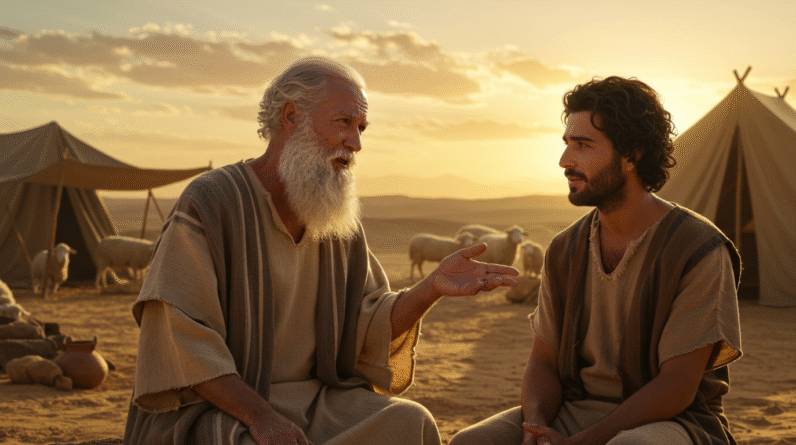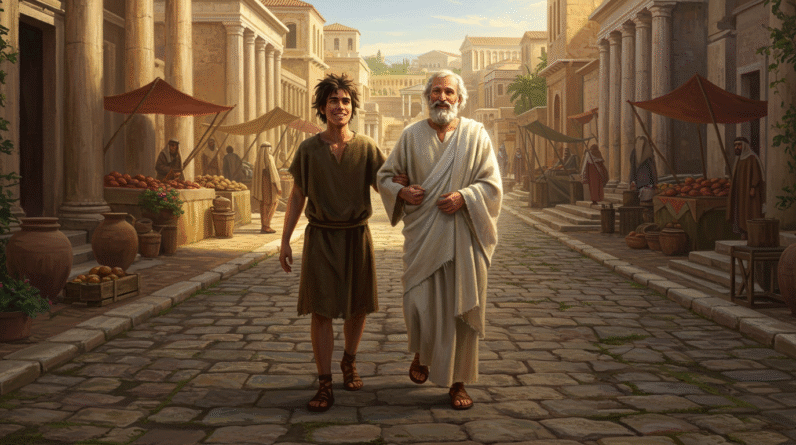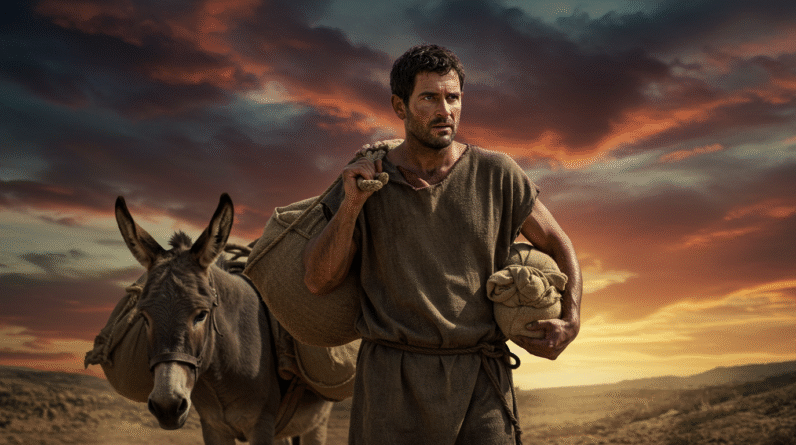Explore Achan’s tale, a gripping narrative of choices and consequences, revealing the profound links between personal actions and community impact in a connected world.
Achan: A Story of Consequences and Redemption
Imagine a story where a single choice leads to an extraordinary ripple effect, impacting not just the individual who makes it, but an entire community. This is the story of Achan, a character who, although plays a brief role in the grand narrative of the Bible, leaves an indelible mark through his actions. The tale of Achan alerts us to the profound interconnection between personal decisions and collective destiny.

Achan’s Story in the Bible
Achan’s story unfolds in the Book of Joshua. He becomes a cautionary figure, demonstrating how disobedience to divine command can lead to severe ramifications. To understand Achan’s context, we must step into the narrative during a pivotal period when the Israelites, freshly liberated from Egyptian bondage, begin their conquest of the Promised Land under Joshua’s leadership.
The scene is set just after a monumental victory at Jericho, an event marked by divine intervention and miraculous deliverance. In this environment brimming with victory and divine favor, Achan makes a decision that will pivot his fate and that of his community. Amidst the triumph, God decrees that none of the spoils from Jericho should be taken, as they are to be destroyed or given to the treasury of the Lord (Joshua 6:18-19).
Yet, Achan, caught in the web of temptation, takes some of the forbidden items and hides them inside his tent. His illicit actions cause God’s favor to depart momentarily from Israel, leading to a humiliating defeat at Ai (Joshua 7:1). As the narrative progresses, Joshua, unaware of Achan’s sin, pleads for understanding and guidance. Through divine revelation, Achan’s secret is uncovered (Joshua 7:10-15).
The consequences unfold with striking severity. Achan, confronted by Joshua, confesses his misdeed. It’s a scene laden with tension and introspection where the individual’s sin resonates throughout the community, illustrating how a single act of disobedience can lead to communal judgment (Joshua 7:20-21). Ultimately, after being held accountable, Achan faces the dire consequences of his actions, reinforcing the narrative’s moral ethos (Joshua 7:24-26).
Lessons from Achan’s Life
Achan’s story serves as a poignant reminder of the consequences of misplaced priorities and the weight of personal decisions. His life offers us a compelling call to self-reflection and underscores the necessity of aligning one’s actions with a sense of duty, honor, and obedience to divine command. From Achan, we are reminded of the perilous nature of succumbing to temptation for fleeting gain, illustrating how a single, seemingly minor decision can precipitate far-reaching consequences.
Additionally, Achan’s narrative invites us to reflect on accountability and integrity. Collective punishment highlights the interconnectedness of societal well-being, emphasizing how individual actions can affect larger communal structures. Here, the narrative cautions against secrecy and deception, advocating instead for transparency and collective responsibility.
Moreover, Achan’s story cautions us to weigh our decisions, understanding that every choice involves responsibility not only to oneself but to the broader community. This timeless lesson rings true across epochs, reminding us to critically evaluate the long-term impacts of our actions.

Connection to Today’s World
In today’s interconnected world, the implications of individual actions on broader communities remain as relevant as in Achan’s time. His story resonates in modern scenarios where decisions made for personal benefit can inadvertently cause harm or disruption. Reflecting on Achan’s tale offers guidance for individuals facing ethical dilemmas, urging us to consider the broader impact on our families, workplaces, and communities.
Consider the contemporary challenges of environmental responsibility, where individual actions contribute cumulatively to global outcomes. Achan’s tale acts as a lens through which personal ecological choices can be examined, advocating for integrated stewardship as opposed to isolated decision-making.
In addition, Achan’s story applies to the digital age, a period marked by unprecedented connectivity and rapid information exchange. His experience prompts reflection on the importance of upholding ethical standards, privacy, and transparency in online conduct, where a single misstep can have viral effects.
Key Bible Verse
A verse that encapsulates Achan’s journey and the moral undertones of his story is Joshua 7:20: “It is true! I have sinned against the Lord, the God of Israel. This is what I have done.” This confession is emblematic of a critical moment of self-awareness and truth. It marks Achan’s recognition of fault and acts as a catalyst for understanding the weight of personal missteps and their impact on faithfulness to divine commands.
Thought-Provoking Question
As you reflect on the narrative, a thought-provoking question to ponder is: In what ways do your individual choices acknowledge their potential to affect not only your immediate environment but also your broader community? How can you ensure your actions align with universal values and contribute positively to the collective well-being?
Historical/Cultural Context
A deeper exploration of Achan’s story benefits from understanding the cultural and historical backdrop of ancient Israel. The context of warfare, conquest, and divine instruction underscores the narrative’s events. Achan’s transgression, seen within this framework, highlights the gravity of violating divine mandates in a society where allegiance to God was synonymous with survival and success.
Comparison with Other Characters
Achan’s story parallels that of Ananias and Sapphira in the New Testament (Acts 5:1-11), who similarly suffer severe consequences for deceit. Both narratives underscore the theme of integrity and authenticity within community dynamics and the divine expectation for honesty and obedience.
Prayer
Let us close with a prayer inspired by Achan’s narrative for discernment and integrity: “Dear Lord, grant us the strength to make choices that honor You and benefit our communities. May we lead lives of integrity, understanding the weight our actions hold. Amen.”
Reflect on Achan’s story and the profound lessons it holds by revisiting the scripture in Joshua 7:1-26.







